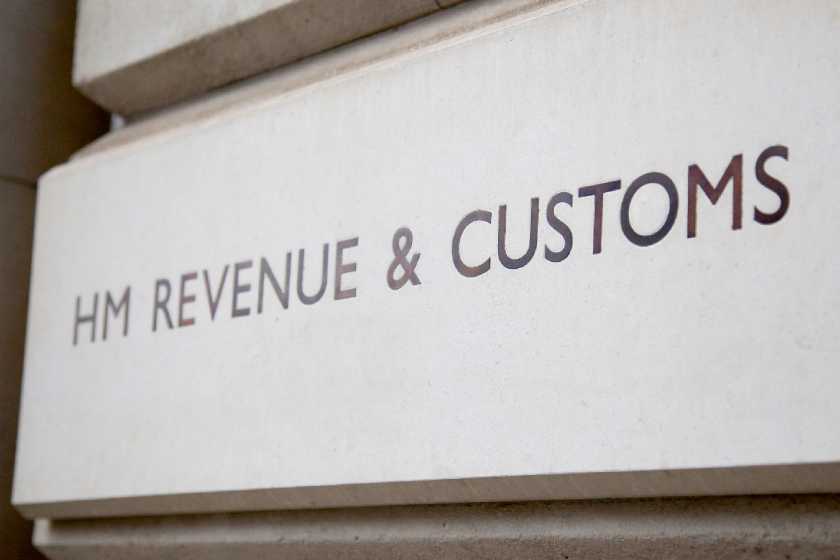IFA Regional Ambassador Mujibur Rahman on embracing the future of...
Through his leadership at RSA Accountants and his involvement with the IFA, Mujibur Rahman is not only adapting to the...
READ MORE
The current VAT registration delays are causing issues on numerous levels. So how are businesses working around it, and is there a solution?

In May this year, when the HMRC VAT helpline closed with three working days’ notice, a group of accountants representing freelance business people discussed how long VAT registration delays were affecting their clients’ businesses and their own.
“It’s at the stage now where HMRC’s service levels are an impediment to running a business in the UK,” one said.
It’s a difficult situation for those waiting up to six months for VAT registration. They could choose to invoice a gross amount with an additional 20 per cent, hoping the clients understand and pay up, then remember to send a replacement VAT invoice once registration is complete. Otherwise, they could tell their clients they’ll be back in the future, with a separate invoice for the VAT amount – hoping for the best, keeping meticulous records and shouldering the administrative burden.
“The HMRC advice of billing gross is all well and good, but freelancers’ customers can, and probably should, refuse to pay the amount that has been added to cover the VAT due,” another commenter added.
Neither of the options above does anything for customer loyalty, says Ian Hornsey, Managing Director of Devonports LAS Accountants & Business Advisors, Chair of the IFA Member Advisory Committee, and IFA Regional Ambassador for Eastern England.
“Obviously, there’s a legal requirement in the UK to register for VAT for businesses with a turnover of more than £85,000,” Ian says. “If you’re taking over a business or you’ve reached a revenue limit, there’s a legal requirement to do so. This is necessary, because of fraudulent claims and money laundering, etc.
Ian says that although he has already conducted due diligence on clients and is not concerned about fraud and money laundering, there is a great frustration in not knowing when VAT registration will come through.
“I have a couple of clients who’ve waited three months so far for something that used to take 24 hours. The biggest problem is that some of their customers simply will not pay their invoices while this situation is in place.”
As some unregistered businesses are issuing invoices with VAT added, but without any form of VAT registration number, the recipients of that invoice are not always convinced they will ever be able to claim the cost against their own VAT liability.
Businesses planning to invoice for the VAT amount at a later date, once they have their registration details, are facing a similarly vexing issue, Ian says.
“We’re having to educate clients that they must advise their customers that they will need to collect the VAT at some later point,” he says.
“So if you’re charging £10,000 plus VAT, just get the £10,000 in. But the customer has to undertake to pay the VAT once the registration number is issued. In the current climate, obviously, [the accountants’] clients are concerned that customers won’t do that.”
Gordie Smyth, founder of Flower Accounting, says particularly for B2C businesses, the VAT issue is causing some of them to reduce their margins rather than upset customers. This, of course, harms the cash flow and potentially the viability of the business.
A B2C business may be charging £10 for a product one day, and then the next day it needs to charge £12 for the same thing to maintain its margin and cover the 20 per cent VAT.
Gordie points out that some businesses aren’t in a position to pass that price increase on to the customer – they might lose market share when customers choose a lower price.
“VAT is a massive barrier to growth and the idea of passing it on while waiting months for a VAT number is even more daunting," Gordie says.
"In an ideal world, we’d register for VAT and then add 20 per cent to the price, with that 20 per cent clearly marked as a consumption tax. But the reality is that customers simply see a total price, meaning some business owners feel unable to pass it on. They end up swallowing some of it. They might not put the item up to £12. They’ll instead put it up to £11, which means they’re making less per unit.”
One of the most pressing issues for businesses waiting for their VAT registration, Gordie says, comes from the fact that there is no guidance or consistency around the time it will take to receive their registration details.
Some are receiving their registration within a few weeks, others are taking many months.
“Let’s say it’s B2B and you’ve agreed a fee of £1,000, but then you’ve spoken with your customer and explained that you’ll charge £1,200, and will send a VAT invoice as soon as you’re registered,” he says.
The customer’s obvious next question is when will they receive that VAT invoice, so they can reclaim the VAT.
“Your only answer is that you don’t know,” he says. “It could be weeks, it could be months. It’s just not very helpful, and it threatens trust.”
What can a business, individual or accountant do to speed up the VAT registration process? Absolutely nothing, Gordie says.
“Other than picking up the phone and trying to speak to HMRC, and you don’t get anywhere fast by doing that,” Gordie says. “It’ll simply be done when it’s done.”
Ian agrees, saying that once a VAT registration application is lodged, it’s simply “in the ether”.
Agents can only continue to act professionally while bearing the brunt – and likely some cost – of the frustration felt by their clients.
“Right now, the reality is that HMRC is under-resourced and is not coping,” Ian says.
“Obviously, this is a nightmare for both taxpayers and their agents.”